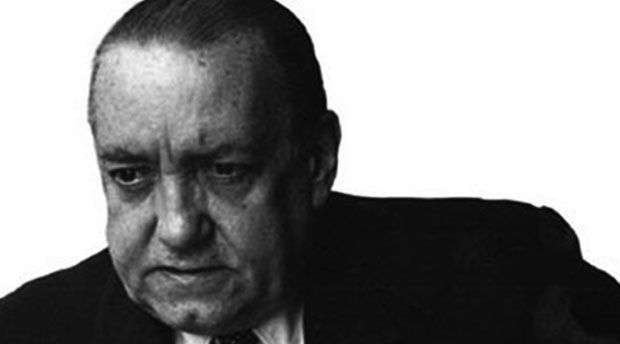A journal of Cuban writer Alejo Carpentier (Lausanne, Switzerland, 1904 – Paris, 1980), Cervantes P rize in 1977, was recently presented by the Foundation that bears his name. The center, in charge of custody of his work, chose last December 26 to launch the volume, the day in which it was celebrated the 109th anniversary of the birth of the renowned author.
Carpentier, novelist, storyteller, musicologist and journalist, is one of the leading figures in the so-called literary “boom” that renewed Latin American literature panorama last century. He is also recognized as one of the fathers of the term “marvelous realism” and by his cultural thought.
Alejo Carpentier´s Journal (1951-1957) reveals his anguish and concerns during the process of literary creation. It consists of 149 pages collecting the day to day of his stay in Venezuela, a stage that has been described by some scholars as “the most fruitful of his life” because there he wrote three of his great novels: The Lost Steps (1952), inspired in the Venezuelan geography, Harassment (1956) and The Age of Enlightenment, completed in 1958.
The author of the prologue, Armando Raggi, explained that the text discovers Carpentier´s “tortuous” creative process, his publishing difficulties, periods of low creative productivity, his work in radio advertising and television, enigmatic passages and episodes of his stay in Paris between 1938 and 1939, as well as his frequent dreams and nightmares.
From this book readers can see how much energy Carpentier devoted to music and how he organized his time. Details about his relationship with characters of Cuban and international culture can be obtained. It also incorporates repeated comments on his daily life and his literary work, confessions as:
“Yesterday and today I work on the (final?) version of The Lost Steps when the idea for this novel came to me, fulminant. Thus, a noon taking a rental car to go home, I imagined it would be a story of seven chapters to write in twenty days. Starting it on December 7, 1949 had it done in January. The book has 40 chapters and charged soon be two years (…) “.
In reviewing the details of the text during its launching, Dr. Graziella Pogolotti analyzed that in 1951 when Carpentier begins this journal “responds to the pressure of an internal necessity in a singular moment of crisis.” “He needs to find an interlocutor, a kind of mirror in which he recognizes himself and explores once again the place where he is, at the time he was finishing The Lost Steps, a novel that marked a turning point in his work” the intellectual said.
“By reading a diary like this you can perceive how the experience is present in the work of a writer, in his life,” and added that “it talks about everything”, “anecdotal elements, the women who passed through his life “and also” some friends who stopped being it.”
The intellectual recalls that this diary was found by the widow and executor of the writer, Lilia Esteban, died in 2008, who found it in a sealed envelope in the house where Carpentier lived, now headquarters of the Foundation. Although numerous unpublished literary works had been published before, a volume like this did not yet exist, which is considered a jewel by its intimate nature and is qualified by Pogolotti as “true cultural event.”
The found texts are typewritten, with handwritten notes and corrections. For the Foundation director, Graziella Pogolotti, this book is an ” invitation to the rereading of Carpentier, to the rediscovery of his work from the clues of this confession.”
At this time the Foundation follows a publication plan reviewing Carpentier´s work, which has included the novel “Ecué Yambao ” and they are currently working on “Baroque Concert” and have in perspective “The Harp and the Shadow,” the latest published novel.
Alejo Carpentier´s Journal (1951-1957), which also contains valuable photos and facsimiles, is published by Letras Cubanas and will be offered for sale soon in bookstores nationwide.










